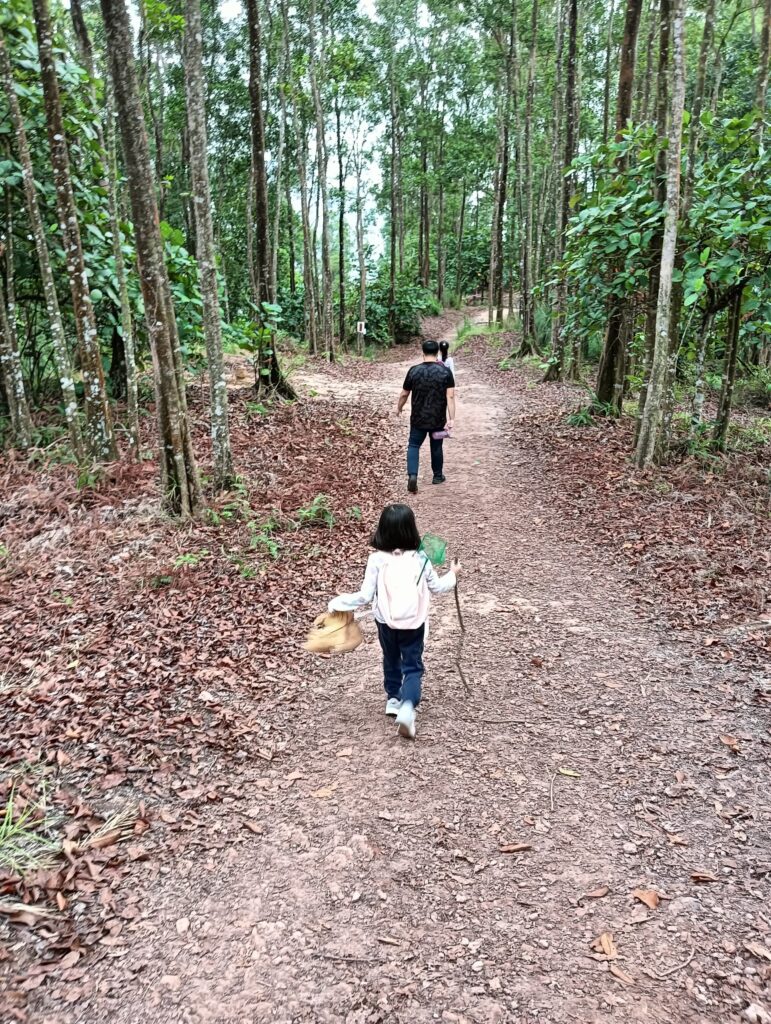More Green Time, Less Screen Time Part 1: Balancing Screen Time with Nature for Child Development
In today’s digital age, children are increasingly drawn to screens, spending a significant portion of their day engaged in virtual activities, watching cartoons, or playing online video games. While technology undoubtedly offers educational and recreational benefits, balancing screen time with green time (time spent immersed in nature) is crucial. As our society becomes more digital, ensuring children have ample opportunities to connect with the natural world is vital. By emphasising the importance of nature, we can help children develop the skills and traits necessary to thrive in an ever-changing world. The concept of “nature-deficit disorder,” introduced by Richard Louv, underscores the need to reconnect children with the natural world to foster healthy development.
Nature immersion, or spending time in nature, is a vital component of holistic child development, not merely a break from the digital world. Exposure to natural environments from a young age fosters resilience and encourages healthy risk-taking behaviours—essential skills for navigating life’s complexities. In Malaysia, where urbanisation and technology are rapidly advancing, children are at risk of experiencing a nature-deficit disorder. The reduction of green spaces in urban areas, combined with increasing academic pressures, limits outdoor play and exploration opportunities. As a result, children may face heightened levels of anxiety, attention disorders, obesity, and a decline in physical fitness.
Nature fosters resilience by exposing children to unpredictable environments.
Resilience is the capacity to recover from setbacks and adapt to challenging circumstances, a critical trait for children to develop. Research over the decades has shown that nature immersion significantly contributes to building this resilience. Natural settings provide children with various unpredictable daily scenarios. For example, the changing weather, diverse terrain, and encounters with wildlife require adaptive responses.

Engaging children in outdoor play in natural settings encourages problem-solving and creativity. For instance, in Malaysia’s lush rainforests, children could experience the joy of climbing a simple tree branch in a park, gaining physical confidence and an appreciation for the natural world. Children might discover the thrill of navigating a jungle trail in Bukit Kiara Park with their parents, encountering vibrant wildlife in Penang National Park, enjoying bird-watching activities at Kuala Lumpur Bird Park, or even constructing a fort from fallen leaves and twigs in the backyard. These hands-on experiences ignite their imaginations and help them understand the importance of the environment around them.
When children face and overcome these challenges, they build confidence in their ability to handle adversity. Studies have shown that regular interaction with nature reduces stress and anxiety in children, further enhancing their capacity to cope with life’s inevitable hurdles. Moreover, nature provides a sense of calm and mindfulness that is often absent in the fast-paced digital world. This tranquillity helps children develop emotional regulation skills, enabling them to manage their emotions more effectively.
Tip: Plan a family trip to a local zoo or wildlife sanctuary. Please encourage your children to observe the animals and their behaviours and discuss how each creature adapts to its environment. You can enhance the experience by creating a scavenger hunt with specific animals or habitats to find. This fosters resilience through exposure to diverse environments and teaches them about conservation and protecting wildlife.
Continue reading about Dr Syaza Soraya’s article on the second half of this article.





